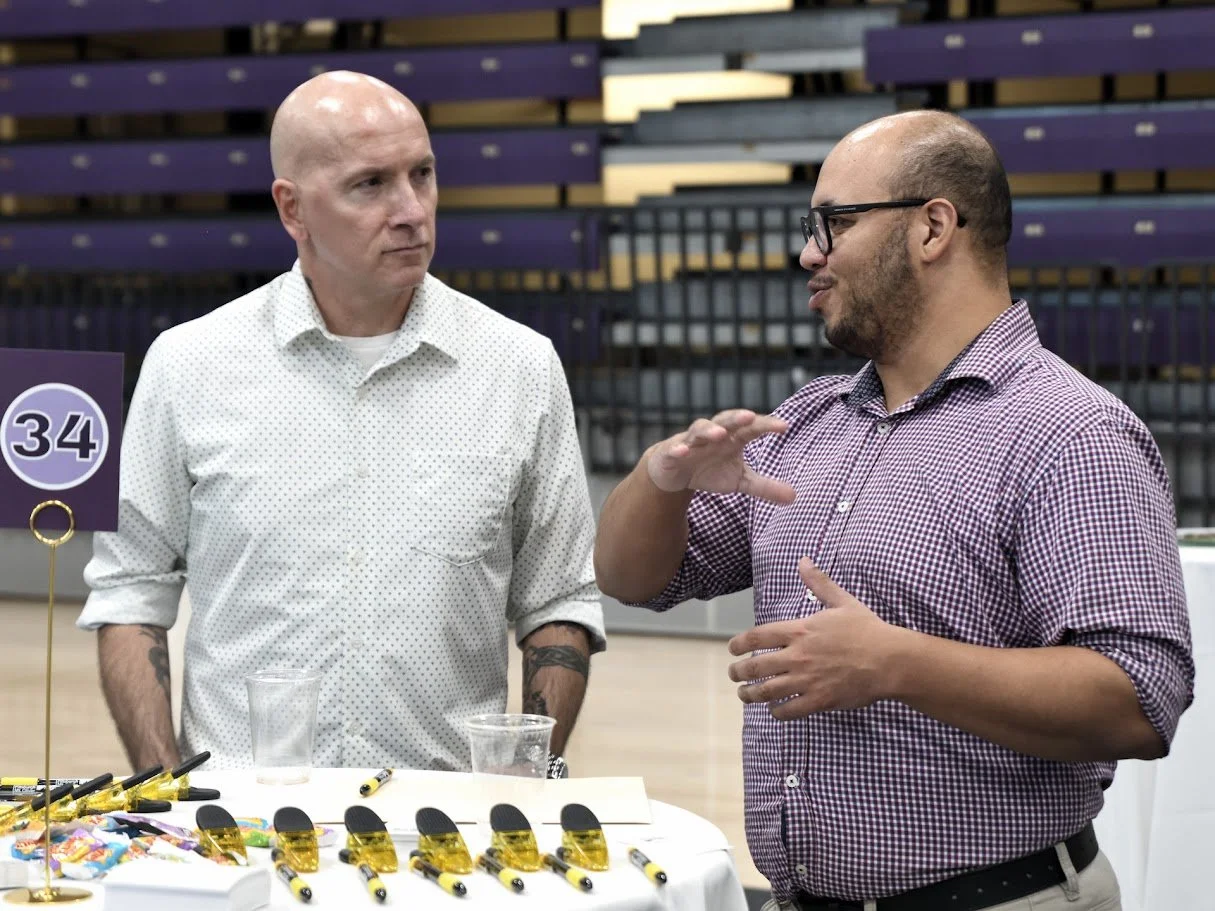The Power of “I Don’t Know”: How to Navigate Uncertainty in Networking and Interviews
Written by: Olivia Harris, Student Assistant for Student Outreach
In professional environments, few phrases feel as intimidating as “I don’t know.” Many people fear that admitting uncertainty signals a lack of preparation or competence. Yet, in reality, acknowledging what you don’t know, when done thoughtfully, can enhance your credibility, demonstrate self-awareness, and position you as a problem-solver. Whether you’re building connections through networking, interviewing for a position, or advancing in your career, the way you respond to uncertainty can shape how others perceive your professionalism and preparedness.
In Networking: Build Authentic Relationships
Networking is rooted in trust and curiosity, not in having every answer at your fingertips. If you are asked a question and don’t know the answer, avoid improvising with something inaccurate. Instead, acknowledge the gap and redirect toward shared learning or future follow-up. For example:
“That’s a good question. I’m not sure, but I’d like to learn more—do you have any resources you’d recommend?”
“I don’t know right now, but I’d be happy to look into it and follow up with you.”
By approaching uncertainty with humility and curiosity, you leave room for further conversation and create an opportunity to reconnect, strengthening the relationship over time. You’re also creating an opportunity to connect with the person a second time.
In Interviews: Demonstrate Thoughtfulness and Resourcefulness
Interview settings heighten the pressure to appear knowledgeable, but interviewers often care more about how you think than whether you know every detail. There are two professional strategies to use:
Take a Moment to Think
It’s entirely acceptable to pause before answering a difficult question. A brief, composed acknowledgment signals thoughtfulness:
“That’s a great question—let me take a second to think through my response.”
This shows poise and allows you to gather your thoughts, rather than rushing into an incomplete or inaccurate answer, which is more likely to diminish your reputation.
Admit What You Don’t Know, Then Pivot
If you don’t have the answer, use the moment to highlight your problem-solving process and willingness to learn:
“I don’t know the exact answer, but here’s how I would approach finding it.”
“I haven’t encountered that before, but I’d be eager to learn and apply that knowledge.”
This approach shifts the focus from the gap in your knowledge to your adaptability and growth mindset, qualities employers value.
When You Don’t Have an Exact Career Path
One of the most common and intimidating forms of uncertainty is not having a clear career path. In networking conversations or interviews, this can feel like a liability, but framing it strategically can turn it into a strength. Instead of apologizing for uncertainty, emphasize your openness to exploration and the skills you are building that will transfer across industries or roles. For example:
“I don’t have an exact career path mapped out, but I know I want to contribute to [field/issue], and I’m exploring opportunities that allow me to build those skills.”
“I’m still learning about where my long-term path will lead, but what I do know is that I enjoy problem-solving, collaboration, and working on issues that impact communities.”
This approach shows that while your path may not be fixed, your priorities, values, and skills are clear. Employers and mentors appreciate candidates who are reflective, adaptable, and open to growth, all of which are essential for thriving in a rapidly changing job market.
Turning “I Don’t Know” Into Professional Strength
Across networking, interviews, and career growth, the key is not to avoid uncertainty, but to handle it with composure. A well-phrased “I don’t know” communicates honesty, curiosity, and adaptability, traits that enhance professional reputation. Whether you pause to gather your thoughts in an interview, follow up with a connection after networking, acknowledge a gap at work, or admit that your career path is still evolving, these strategies turn uncertainty into opportunity.
In the end, professionalism is not about knowing everything; it’s about knowing how to respond when you don’t.


